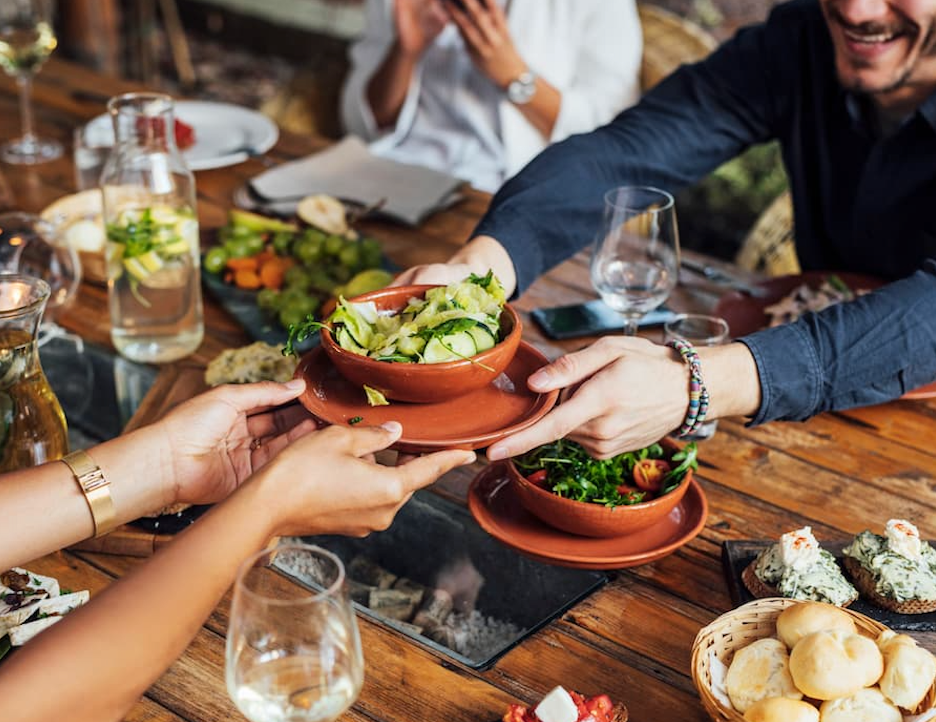6 Tips for Dining Out When You Have GERD
GERD causes painful symptoms like heartburn and difficulty swallowing, but by avoiding certain trigger foods and habits, you can reduce discomfort and enjoy meals without worry.
By
Lana Pine
| Published on September 6, 2024
4 min read
Credit: Adobe Stock/LStockStudio

Gastroesophageal reflux disease (GERD) affects between 2.5—33.1% of patients globally, with common symptoms including heartburn, stomach or chest pain, trouble swallowing and tasting a sour liquid in the throat. These can certainly put a damper on daily life, including time spent dining out with friends and family.
In the following article, we explore some useful tips and tricks, including foods to avoid and foods to enjoy, to minimize your odds of heartburn and GERD symptoms during your next night out.
Limit Fatty Foods
Fatty foods include sandwich melts, including grilled cheeses, are far more likely to trigger bouts of heartburn. Fried food, high-fat meats, creamy sauces and full-fat salad dressings can also increase your odds of heartburn flares. These foods take longer to digest, which in turn leads to delays in stomach emptying, and can intensify acid reflux.
Avoid Alcohol and Cigarettes
Alcohol has been shown to increase the amount of acid the stomach produces as well as relax the valve at the top of the stomach, both of which can impact heartburn. Additionally, alcohol can damage the lining of the esophagus, which in turn can increase irritation. Results of a meta-analysis revealed an increase in alcohol consumption and frequency were linked to worse GERD symptoms among. Cigarettes similarly relax the esophageal sphincter, which can further promote acid reflux symptoms.
Avoid Acidic Foods/Drinks
Highly acidic foods, such as coffee, tomatoes, vinegar and lemons, are more likely to exacerbate heartburn symptoms, although there are few scientific studies examining this connection. Researchers from Harvard Medical School encourage patients to eat more non-citrus foods, such as bananas, melons and pears instead.
Ditch Spicy Food
While spicy food may not cause heartburn in all patients, the capsaicin found in spicier fare can reduce digestion speed among patients with GERD. Among a survey of 100 patients, 62% reported spicy food as a heartburn trigger, followed by other well-known causes, such as chocolate (55%) and pizza (55%). To reduce heartburn-intensifying foods without sacrificing flavor, opt for fresh herbs over capsaicin-rich spices.
Don’t Eat Too Close to Bedtime
Laying down before you fully digest your meal significantly increases your odds of experiencing heartburn because being horizontal makes it easier for stomach acid to make its way into the esophagus. Experts recommend finishing your last meal of the day at least two to three hours before bed, and some even encourage patients to keep their head and chest elevated during sleep. A study published in Pakistan demonstrated head and chest elevation when sleeping was the most significant lifestyle change patients could make to mitigate potential reflux. Among the 2000 people surveyed, 79.4% of patients who kept the head of the bed raised during sleep or took a short post-dinner walk (43.3%) had fewer symptoms of GERD.
Load Up on GERD-Friendly Foods
There are plenty of foods that are less likely to trigger heartburn, many of which are readily available across cuisines. When eating at a Mexican restaurant, for example, experts point to options including fajitas, broth-based soups, low-fat beans and rice, guacamole and tortillas. When opting for Asian fare, dishes such as beef and broccoli, shrimp and veggies, wonton soup and steamed dumplings are safe choices. Other GERD-friendly foods include grilled, poached or baked chicken or fish, baked potatoes, brown rice, whole grain sandwiches made with lean cuts of meat—such as turkey and roast beef—and steamed vegetables.
Although these are helpful tips for reducing some of the common triggers of GERD, every patient is different. Therefore, some experts also encourage keeping a food diary to learn more about your personal triggers, which can help you be more prepared for your next dining experience.

